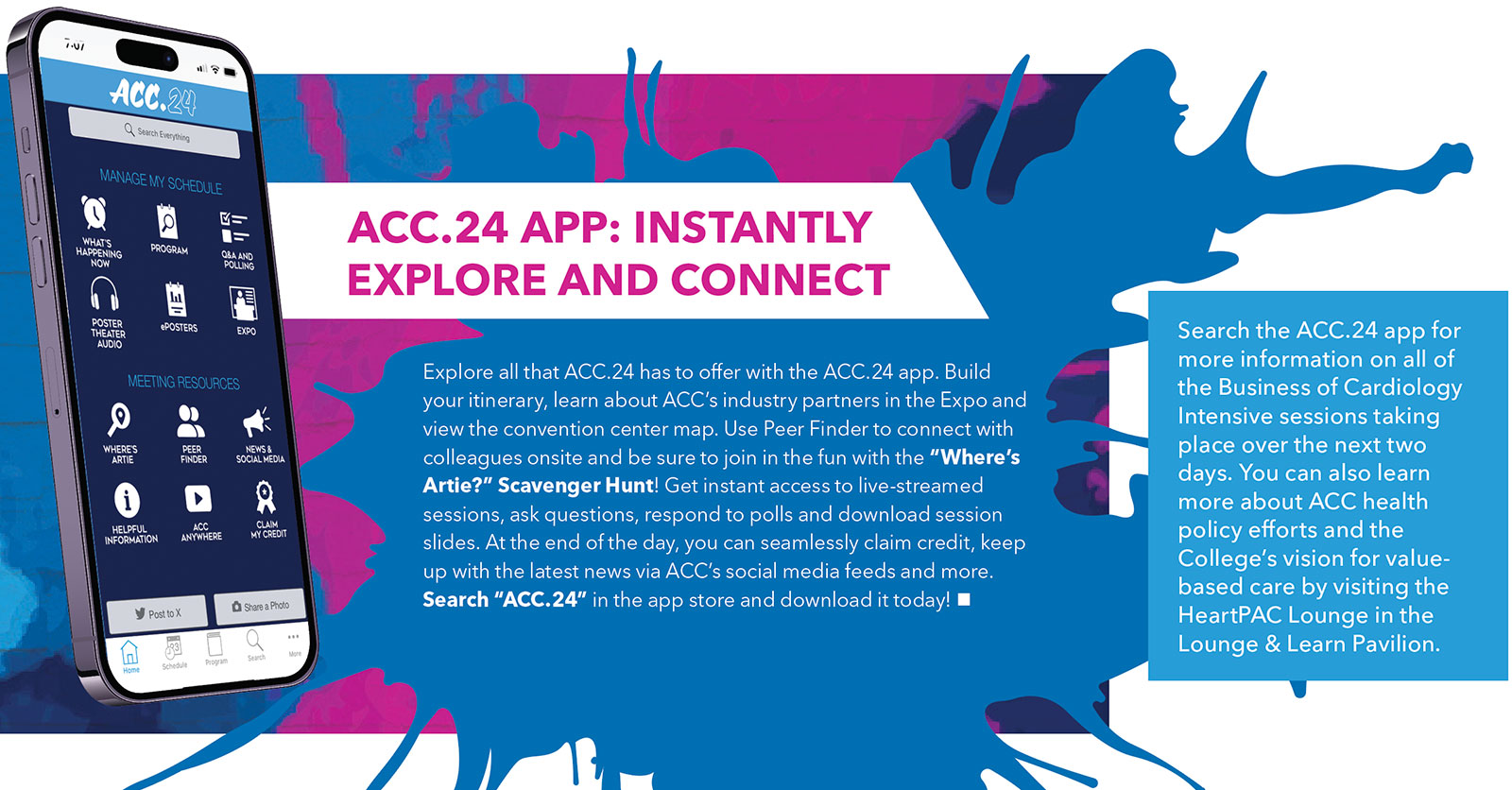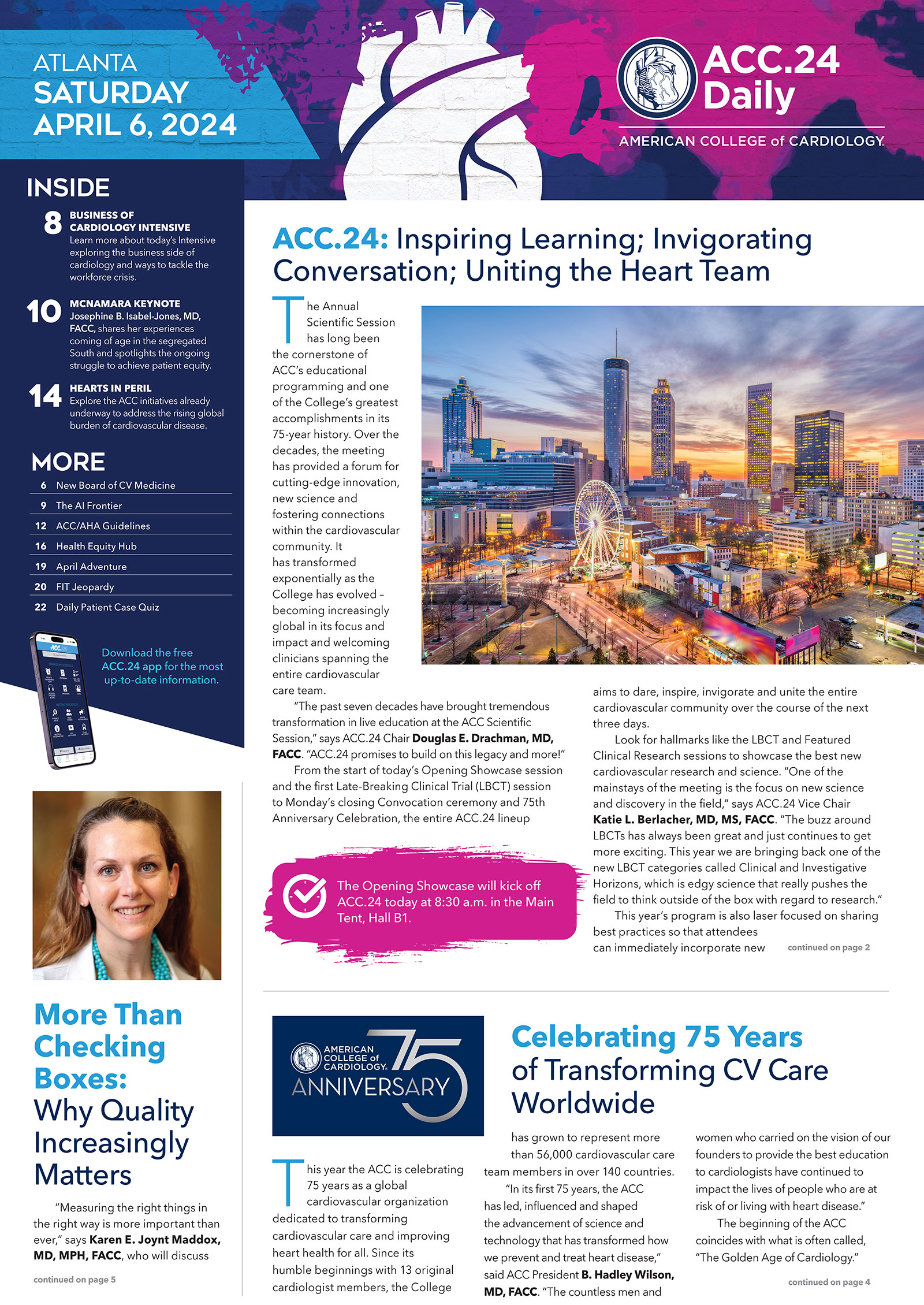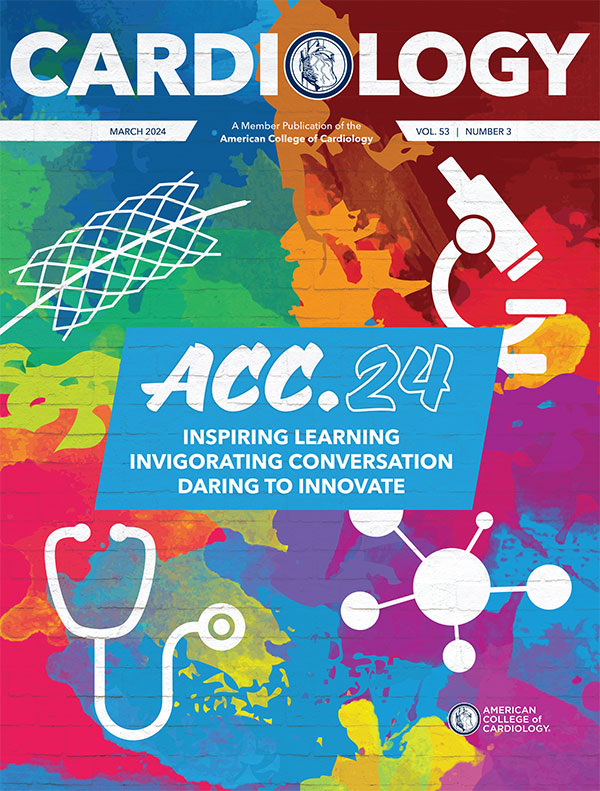James T. Dove Keynote | More Than Checking Boxes: Why Quality Increasingly Matters

"Measuring the right things in the right way is more important than ever," says Karen E. Joynt Maddox, MD, MPH, FACC, who will discuss the future of quality health care when she presents today's James T. Dove Keynote, "Why Quality Increasingly Matters."
Joynt Maddox, who is a practicing cardiologist at Barnes-Jewish Hospital in St. Louis, MO, an associate professor at Washington University School of Medicine in St. Louis and co-director of the Center for Advancing Health Services, Policy and Economics Research at the University's Institute for Public Health, says the current approach to measuring quality is "micromanaged to check boxes," but quality is "so much bigger than that." She shares her thoughts below on her definition of quality, why it increasingly matters, and some of the biggest challenges and opportunities as the health care system continues to evolve from fee-for-service to value-based care.
How do you define quality?
When we first started talking about measuring quality, it was narrowly defined. Medicare started reporting quality online in 2004, which was a big moment. We looked at quality in ways that we could easily measure: Did you give somebody aspirin when they were having a heart attack? Did you give somebody a flu shot when they were in the hospital? It was very concrete, hospital-centric and modular. There were these little bites, maybe 10 or so measures, and that was how we defined quality. Now, 20 years later, we can go online and find the performance of practices, hospitals, nursing homes and dialysis facilities on more than 250 quality measures. We have vastly expanded the list of things we can measure, but have we really reached optimal quality? I'd argue that we haven't because we've been defining quality too narrowly. We need to define quality in terms of making it possible for everyone to achieve their best possible health.
Based on this definition, in what ways does quality increasingly matter?
How we measure quality matters because we tend to only work on improving what someone is measuring, whether that be Medicare or U.S. News & World Report, etc. But somewhere we've gone wrong. We have improved the number of people who are on statins, but obesity rates are skyrocketing, hypertension rates are skyrocketing, readmission rates haven't budged and life expectancy is dropping. We are increasingly aware of these entrenched, completely unacceptable health inequities throughout our society. Something isn't working and now we need to shift towards using quality measurement to translate toward better health and better outcomes, which is what people want.
What are some of the biggest challenges when it comes to addressing quality?
We have an old data and analytics structure, so we are looking at quality in these little health system-focused aliquots. We have many, many more measures, but they are all still just cross-sectional point-in-time measurements. If we want to be patient-centered and holistic, we must think about the entire patient, rather than thinking about them as a collection of their quality metrics. A second challenge is that we deliver care the same way we did 20 years ago. We still expect people to come to us, in our big buildings and awful traffic. We don't meet people where they are. We accept that geographic barriers should get in the way of people having access to care. We make our clinic schedules based on who is due for a six-month check-in, not based on who is getting sick and needs to see us this afternoon. There is a lot about the way we deliver care that is not innovative and locked in.
Discussions about quality go hand-in-hand with discussions about the ongoing evolution to value-based care. What policy opportunities exist to ensure quality within a value-based care environment?
The most crucial health policies that can be put in place in the context of value-based care are the ones that move us towards population health and away from the fee-for-service sick-care model that we currently use. More broadly, if we want to achieve better outcomes in health, we must think about things outside health care. It is still true that the strongest predictors of health outcomes are related to education and poverty, particularly early in life. We need to think about the fact that much of what we see in terms of patients' health is written by the time they get to us. We must think about the period earlier in the stream toward developing cardiovascular disease, which starts in childhood and is impacted by stress, trauma and lack of access to care when patients may not have insurance. These are ultimately the ways policy can help us get to better cardiovascular health.
In addition to health policy efforts, what can individuals and societies like ACC do to move beyond checking boxes?
Individually, I think practice redesign is probably the thing clinicians can most feasibly do in the near term, particularly if policies related to population health can continue to move forward. We are seeing a lot of fantastic practice transformation efforts. Clinicians are leading in changing how we do things by working with the care team to restructure care, using digital monitoring, and/or proactively reaching out to high-risk patients. In short, they are working to actually keep people healthier.

Thinking about the ACC, there is quite a bit of advocacy work happening in terms of coverage policy and payment policy. The policy community has largely been made up of health economists. But the clinical community saying, 'This is how we generate health, and this is how we think the system needs to change to do that,' is powerful. That's why the ACC holds lobby days where clinicians can go talk to their lawmakers. The ACC sees this work as part of what they need to do – not to be political, but to recognize that to make change that is good for patients and clinicians sometimes requires work to change the system.
Keywords: ACC Publications, ACC Scientific Session Newspaper, ACC24
< Back to Listings


